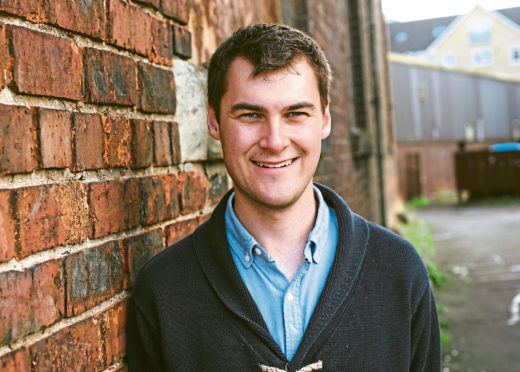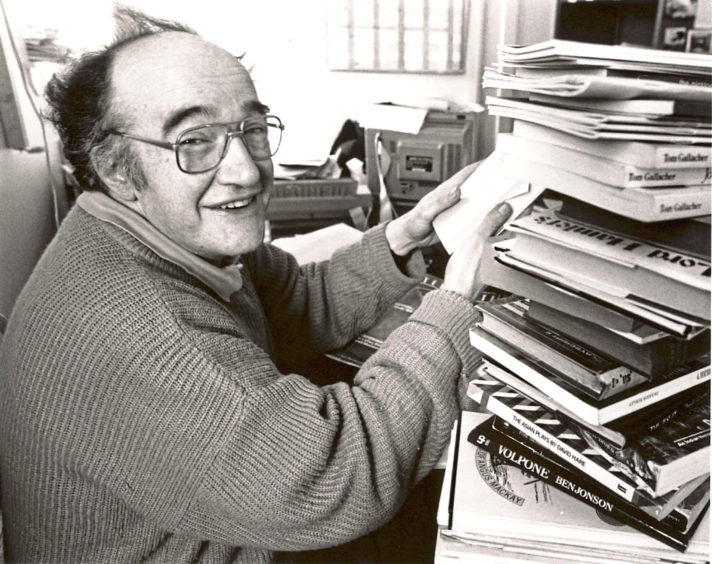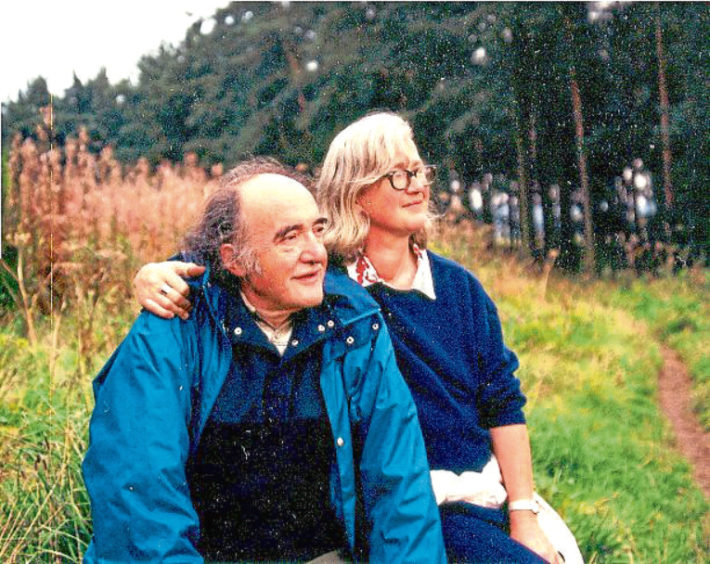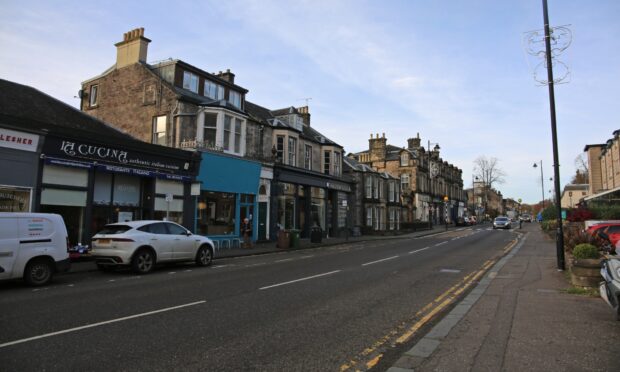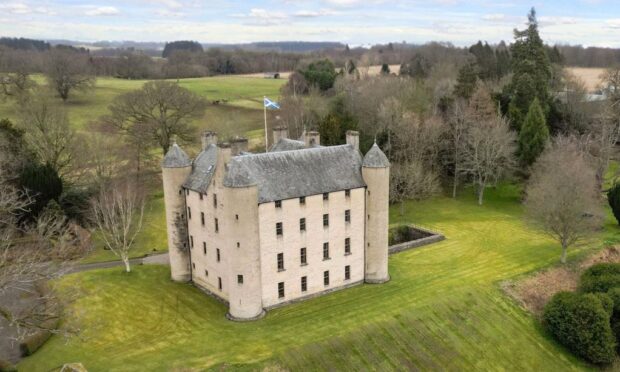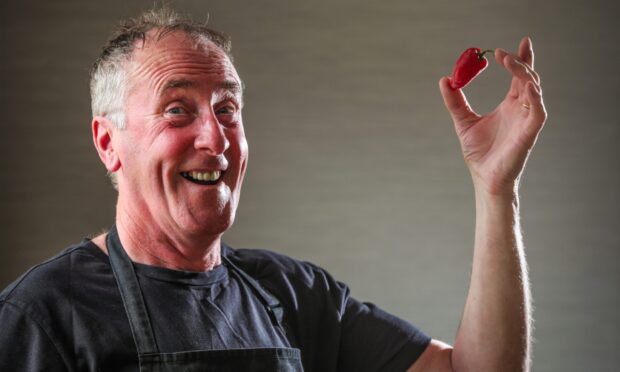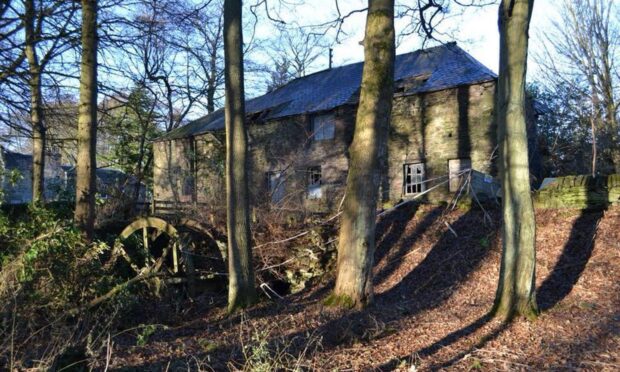Writer Ross MacKay’s life has changed in many ways in the last 12 months, from becoming a new dad to leaving his job as a theatre director with Tortoise in a Nutshell behind to focus on new projects. Ross, 34, who lives in Aberdour, Fife, with wife Emma and son Noah (10 months) turned to writing poetry at the beginning of lockdown last year and has not looked back.
“At the start of lockdown in March last year, I wrote a couple of poems to entertain my friends and family’s children,” he says.
“I put the videos on Facebook and they got a huge response. I decided to write some more and really enjoyed it. I entered one into the William Soutar Writing Prize competition last year and to my astonishment, I won. I have now been asked to open the William Soutar Festival with a new poem.”
Having more time at home due to lockdown and having stepped away from his work with his theatre company, Ross was able to focus his attentions on writing. “I have a novel for children, Will And The Whisp, coming out next year. Life in general has of course been very different for all of us, but having some nappies to change has kept me busy,” he laughs.
Ross is now working on a mass-participation poetry writing project that has won funding from the Tom McGrath Trust. The project aims to “grow” poems in a way that echoes the “R numbers” we have all become so used to hearing about over the last year.
“When the pandemic began, I listened to a lot of news podcasts and watched every briefing,” he says. “Trying to understand what was happening to our lives and to people around the world. People talked a lot about the R number and I didn’t really know what it was. My brother’s a genetic scientist and I picked his brain a couple of times. It clicked in my head when I thought of it like a pyramid scheme or chain letters as a child. I realised this is how most things must spread. Like how a meme on the internet becomes popular or a movie becomes a cult classic. I began to wonder if the exponential growth of the R number concept was a way we could spread art.”
Exploring art and science
While poetry and science aren’t necessarily two disciplines that people would connect, Ross believes they have more in common than we assume: “I think art and science come from the same human desire to explore,” he suggests. “They explore the wonders of the world in very different ways but for me that is fascinating. Art is also about communicating and storytelling, which I think scientists might need more than ever. The pandemic is a great example – loads of people started watching a movie called Contagion and Peter May’s novel Lockdown became a best-seller. We use art to understand what is happening around us.”
The idea for R-Words took root – “It is a mass-participatory poetry writing project that will take place in communities across Scotland, with the possibility of generating thousands of new poems. Participants will be emailed the start of a poem, they are encouraged to add a line of their own to the poem and email the poem (with their new line) to three friends. The three friends can now add their line (making three different versions) and they will now email their poems to three friends. This continues until a 10-line poem is made, which will then be the finished poem.
“By the end, if everyone keeps spreading the poems to three friends and we get every possible version of the poems back, we would have created more than 200,000 new poems!”
Aware that the concept for R-Words was very experimental, Ross turned to the Tom McGrath Trust for support. “I knew about the awards because friends in theatre had previously won with fabulous writing projects,” he says. “When I read that the award was called the Maverick Award, I thought the trust might like the idea of something so experimental.
“The award has done three things,” continues the writer, “most importantly, it has allowed me to pay a small fee to 12 of Scotland’s finest poets working in English, Gaelic, Scots and BSL to each create a starting line which will be the first line of every poem.
“Secondly, it has allowed me to work with a website design consultant who is instrumental in helping me create a functional and beautiful website which will host the poems as part of an online gallery celebrating the project – even if we get thousands of entries.
“Finally, the award has paid for my time to try to pull this project off. A project like this has a lot of partners and moving parts, so having some time I can fully dedicate to it makes it possible.”
Fittingly, Tom McGrath is also someone whose work Ross studied and admired at university. “He was my favourite Scottish playwright. He made a play called Animal, which I never saw but I read the script. I would love to see that piece revived. It inspired me so much,” he enthuses.
Ross’s project is coming to life, with opening lines now written by the 12 poets. The finished poems will be hosted on a website called rwordspoetry.com (to be launched in May) and there are also plans for events “where a curated selection of the poems will be performed and we will celebrate the whole project later in the year. I hope the public will also write a lot of the poems so they will get to experience the project as an unfinished poem pops up in their inboxes for them to enjoy and contribute to.”
That public engagement is something Ross really hopes for. “I think it would be wonderful for us to use the R number to make a little bit of joy and poetry infectious,” he says. “It’s been a hard year and I hope people might enjoy crafting a little rhyme or line to send to a friend.”
For Tom McGrath Trust member and, most importantly, the late playwright’s daughter, Alice McGrath: “Ross MacKay’s work stood out as it responded so sensitively and generously to the time we are living through. It seeks to connect people, through art, in a unique way. Ross plans to create a large-scale participatory writing project; a series of poetic chain letters inspired by what he has learned about R numbers in the last year. The results of the work cannot be predicted or controlled and we are excited to see what will result. Ross has been developing his own work as a poet and writer recently and it feels like a great time to support his ideas and development.”
The Tom McGrath Awards and trust were set up in 2010, with the first awards made in 2011. “The trust has made two different types of awards: The Small Grants were specifically to support writers and the Maverick Award was open to artists from any discipline for projects with writing at their heart that departs from the routine and starts to explore new and imaginative possibilities,” Alice explains.
Previous winners of the Maverick Award have included a writer/visual artist collaboration, a writer/IT collaboration and writer collective The Village Pub Theatre.
Alice works in the arts and has been involved in the awards since their inception. “I’m a trustee and together with the other trustee Lucy Mason and my dad’s partner Ella Wildridge, we have fundraised, decided on budget and number of awards each year and assessed applications. Ella added another layer of support for everyone who applied. She always reached out to give artists time and space to talk about their work and guidance from her experience as a dramaturg.”
Final awards
year, Alice says the award panel had a really difficult time shortlisting and agreeing the final list. “We really do wish we had had much more funds to distribute as there was so many interesting projects. Reading the applications has shown us again the great amount of talent and creativity alive in Scotland’s artists today, and we were also acutely aware of the impact the pandemic has had on freelance artists. The chosen projects from Ross MacKay, Bibo Keeley, Angus Reid and Katherine Mendelson ultimately felt like the best fit for our awards.”
Sadly, Ella Wildridge has become unwell over the last year and the decision has been taken to bring the trust to a close. “It is the right thing to do,” says Alice. “Without Ella’s active involvement the trust loses its drive and the added brilliance she brought. This last round of proposals has shown us again just how much this kind of support is needed. I hope someone picks up the mantle and creates a series of arts awards that are easily accessible and adventurous in their nature.”
Find out more about Tom McGrath and the Tom McGrath Trust here:
To contribute to a poem email: rwordspoetry@gmail.com
